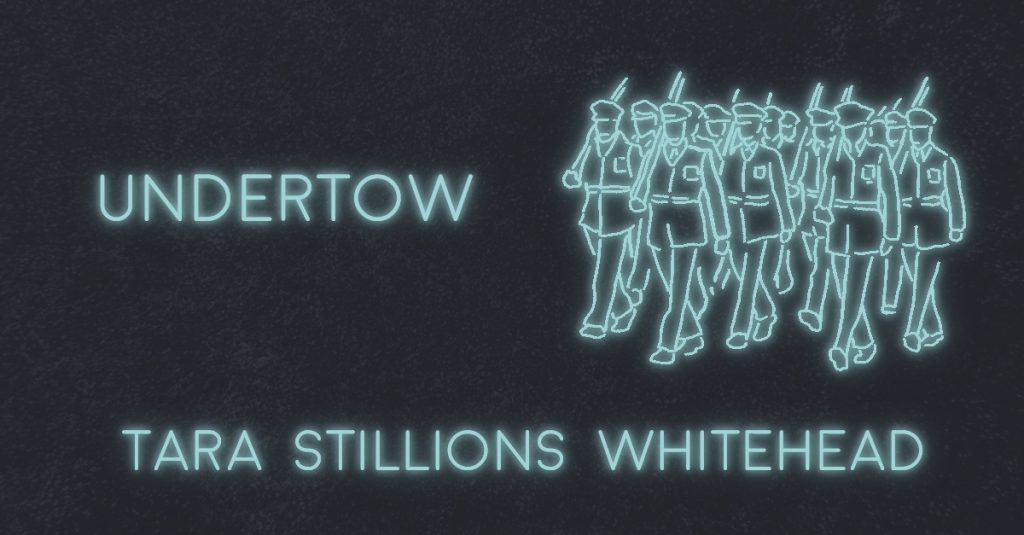
UNDERTOW by Tara Stillions Whitehead
We pinned their name tags to our knitted sacks. Reynolds. Solomon. Childs. Kennedy. We wrote their room numbers on our wrists and waited for them on the cement benches near the commandant’s office. We sat with our legs crossed, condoms in our back pockets, while they marched the line in their parade uniforms. We tracked sand from dorm to bedroom sheets. Someone’s mother washed their civvies and kept them in the guest room or the pool house, convinced we were the ones doing the civilizing. There were boys whose names we couldn’t share. Boys whose names we’d seen taped inside…
